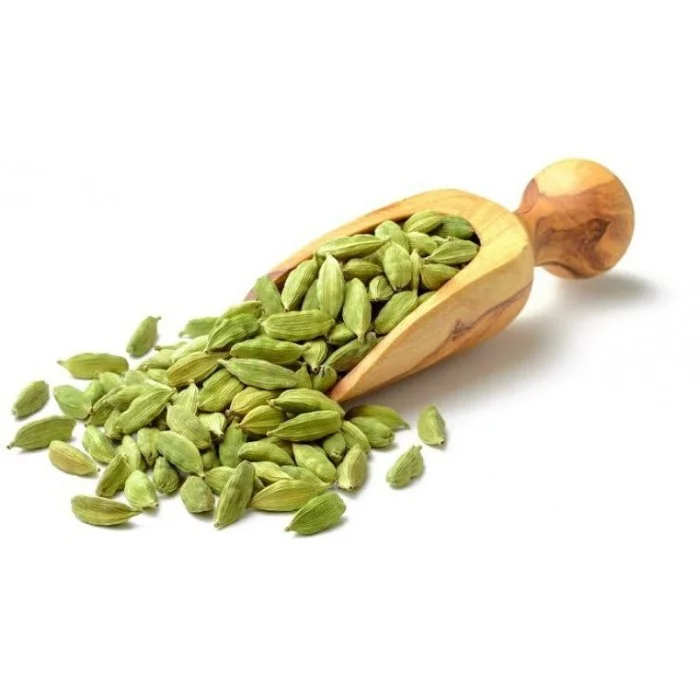Cardamom, famously known as the “Queen of Spices,” is celebrated for its rich aroma, unique flavor, and extensive therapeutic properties. Native to India and Sri Lanka, this cherished spice has been a cornerstone of traditional medicine and culinary arts for centuries. Derived from the seeds of the Elettaria and Amomum plants, which belong to the ginger family, cardamom is a powerhouse of flavor and health benefits.
From adding depth to dishes and beverages to supporting overall wellness, cardamom has earned its place in kitchens and traditional medicine cabinets worldwide. Let’s explore its uses, benefits, and why it’s a spice worth celebrating.

Nutritional Value of Cardamom
Cardamom is packed with essential vitamins and minerals like zinc, potassium, magnesium, and vitamin C, making it a nutritional powerhouse. These nutrients contribute to its numerous health benefits, including improved immunity, better digestion, and enhanced overall wellness.
Health Benefits of Cardamom
1. Aids Digestion
Cardamom has long been used in traditional medicine to alleviate digestive issues such as nausea, vomiting, and indigestion. Its natural oils stimulate appetite, soothe the stomach, and help counteract acidity, promoting smooth digestive functioning.
2. Possesses Antimicrobial Properties
The antimicrobial compounds in cardamom help combat infections and promote oral health. Regular consumption can reduce bad breath, prevent dental cavities, and maintain gum health.
3. Supports Heart Health
Cardamom’s antioxidants help reduce inflammation, which contributes to cardiovascular wellness. Regular use of this spice may help lower blood pressure and improve heart health, making it a natural ally for your cardiovascular system.
4. Acts as a Natural Detoxifier
Rich in antioxidants, cardamom supports the body’s natural detoxification process by flushing out toxins. This helps improve skin health, reduce inflammation, and enhance overall vitality.
5. Boosts Mood and Relieves Stress
The aromatic compounds in cardamom are known to have mood-boosting properties. It’s often used in aromatherapy to reduce stress and improve mental clarity.
Culinary and Therapeutic Applications
Cardamom’s sweet and slightly spicy notes make it a versatile ingredient in both sweet and savory dishes. It’s a staple in Indian cuisine, featured in curries, biryanis, and desserts like kheer and halwa. Additionally, it’s widely used in beverages like chai, coffee, and herbal teas for its aromatic flavor.
Beyond the kitchen, cardamom is used in traditional medicine for its therapeutic benefits. Whether used as whole pods, ground spice, or essential oil, cardamom continues to be a favorite ingredient worldwide.
How to Incorporate Cardamom into Your Diet
- Add crushed cardamom pods to your tea or coffee for a fragrant twist.
- Use ground cardamom in baked goods like cookies, cakes, and bread.
- Sprinkle it over fruit salads or oatmeal for a flavor boost.
- Include it in curries, stews, and rice dishes for a rich, aromatic flavor.
Why Cardamom Deserves a Place in Your Diet
From its role in improving digestion to supporting heart health, cardamom offers a remarkable blend of flavor and functionality. Incorporating this spice into your daily routine can provide a natural boost to your overall health.
Key Takeaways
- Cardamom is a highly aromatic and versatile spice with numerous health benefits.
- It aids digestion, freshens breath, and acts as a natural detoxifier.
- Packed with antioxidants, it supports heart health and reduces inflammation.
- Its unique flavor enhances a variety of sweet and savory dishes, making it a staple in Indian cuisine.
Start using cardamom in your recipes today to enjoy its incredible health benefits and elevate your culinary creations!
